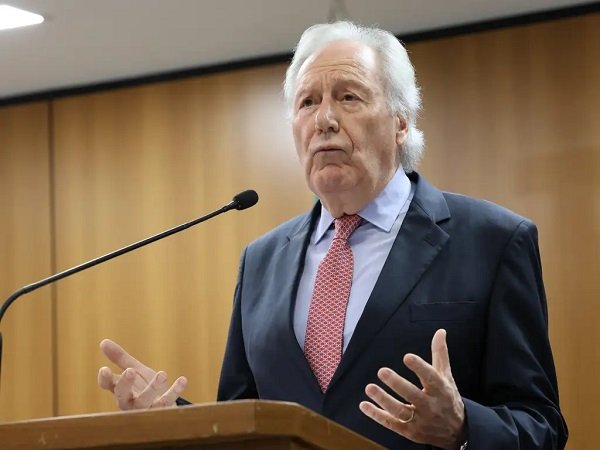The Minister of Justice and Public Security, Ricardo Lewandowski, pledged on Monday (24/03) that, with the eventual approval of the Public Security PEC, all states and cities seeking federal funding to equip police forces and municipal guards will receive kits with non-lethal weapons. The goal is to curb the indiscriminate use of force during operations. During an event, Lewandowski also stated that states would be required to comply with federal guidelines, including the mandatory use of body cameras.
This Content Is Only For Subscribers
To unlock this content, subscribe to INTERLIRA Reports.
PEC’s Path
The Proposed Amendment to the Constitution (PEC) is expected to be submitted to Congress in early April, following President Lula’s (PT) return from an international trip to Asian countries, including Japan, alongside Chamber of Deputies President Hugo Motta (Republicans) and Senate President Davi Alcolumbre (União Brasil).
Cameras in Uniforms
Regarding body cameras, Lewandowski explained that the government had set flexible rules to allow for different implementation models, as the continuous storage of footage is costly. This concern has been raised in states like São Paulo, where Governor Tarcísio de Freitas (Republicans) criticized the expense of maintaining non-essential recordings. The federal protocol outlines three conditions for camera activation: automatic, by a superior, or manually by the officer. Cameras must be activated in 16 specific scenarios, such as responding to a call, making an arrest, engaging in a shootout, conducting forensic examinations, or transferring inmates.
Security PEC
The minister has supported the Public Security PEC since assuming office, viewing it as a key instrument to modernize and unify public safety policies across Brazil. Lewandowski argues that the measure would provide a clearer legal framework for cooperation between federal, state, and municipal forces, while also enabling broader access to federal resources tied to compliance with national standards. Despite this, the proposal initially encountered resistance from influential figures within the Lula administration, including high-ranking ministers and governors concerned about potential interference in state autonomy over police matters.
Inclusion of the Municipal Guard
Lewandowski also announced the inclusion of municipal guards in the Security PEC. The decision followed a Supreme Federal Court (STF) ruling affirming that municipal guards can engage in community policing and make arrests in flagrante delicto. The proposed amendment will formally include these forces in Article 144 of the Constitution. Their role will focus on urban safety, complementing the Civil and Military Police without overlapping responsibilities, and integrating with other entities within the Unified Public Security System.
National Public Security Fund
In January and February 2025, Brazilian states spent over R$150 million from the National Public Security Fund. February alone saw a record R$106.5 million in expenditures, according to the Ministry of Justice and Public Security—an increase of 46.7% compared to February 2024, when R$72.6 million was used. The fund, Brazil’s main mechanism for financing public security, is supported by lottery revenues and parliamentary budget amendments.
Analysis:
The Public Security PEC represents a significant shift in Brazil’s approach to law enforcement, aiming to standardize policies and expand federal oversight over state and municipal security forces. By conditioning federal funding on adherence to national guidelines—such as the use of body cameras and non-lethal weapons—the proposal seeks to curb excessive force and promote greater accountability. However, the measure also raises concerns about state autonomy, a longstanding point of tension in Brazil’s federative structure.
The formal inclusion of municipal guards in the PEC also signals a broader recognition of their role in urban security. While their expanded authority aligns with recent Supreme Court rulings, it will be crucial to ensure that their responsibilities complement, rather than conflict with, those of the Civil and Military Police.




